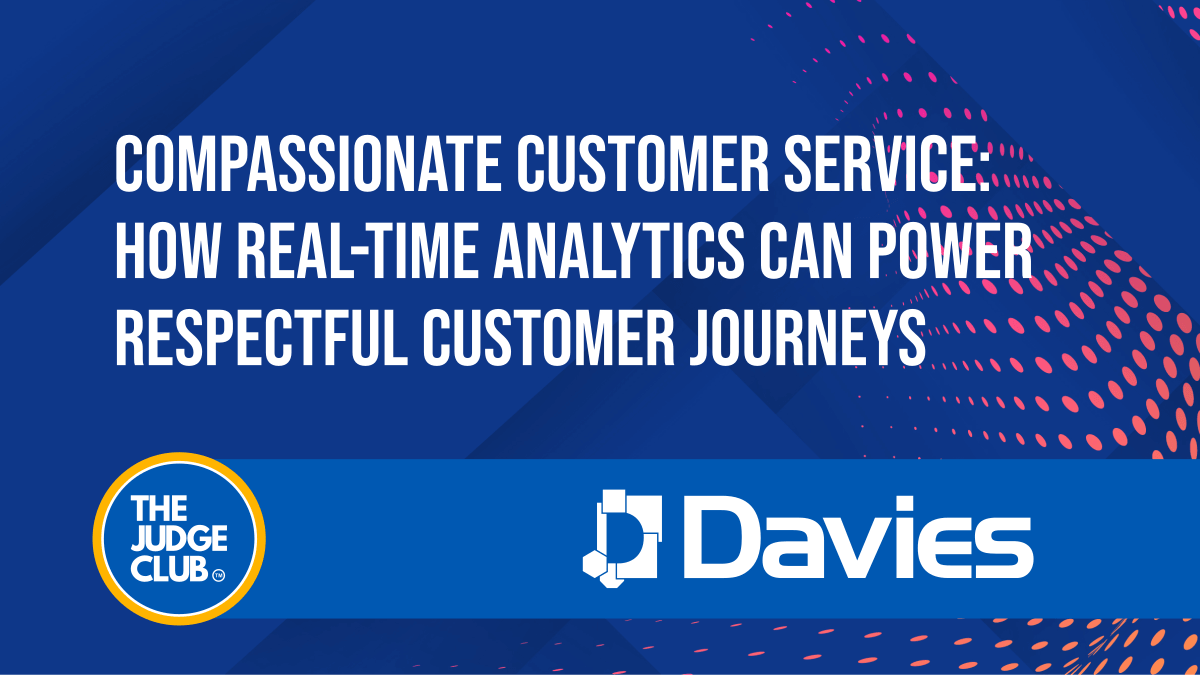If recent years have shown us anything, it’s that the standard of customer service you offer can be the defining factor for whether organisational success is reached—particularly where empathetic and compassionate interactions are concerned.
Nowadays, customers expect a much more personalised, and structured service than previous years, whereby they feel heard, valued, and are given options by an agent with the knowledge and problem-solving skills required to solve their concern in an efficient and effective manner. But with a Customer Contact Week report revealing that one-third of customers believe customer service has actually deteriorated over the past year, and a further 33% believe their experiences aren’t being personalised, there’s a call for global CX strategies to be reimagined.
Compassion in customer service
We all want to feel respected by others—especially when you’re reaching out to an organisation about a product or service you have invested in or are considering doing so. And with the cost-of-living crisis weighing heavy on the UK and talks of a recession on the horizon applying further financial pressure, your customers want and need to feel as though their investments are worth it.
The circumstances your customers find themselves in are personal, and therefore warrant a personalised service that empathises with their own stressors—and aims to relieve these as much as possible. And this is where real-time analytics is coming into its own.
Real-time analytics is redefining CX
The automation of customer service is also saving organisations hours per week, and in the process, reducing their costs in the longer-term. But with more customers demanding this personalised service, it’s no surprise we’re seeing larger uptakes of smart, real-time analytics technology that works to serve these tailored customer interactions. In fact, an industry report by KX and the Centre for Economics and Business Research (CEBR) has found that utilising real-time analytics has resulted in revenue uplift for 80% of businesses.
By leveraging real-time data analytics, particularly when paired with AI tools, organisations can form a deeper understanding of their customer base as individuals and use this to inform decisions made to enhance the customer journey. This is particularly critical when dealing with sensitive circumstances, for example, bereavements.
We’ve seen examples where financial service businesses have been able to use real-time analytics to create an entirely new pathway of the customer journey for these vulnerable customers to follow, helping to satisfy Consumer Duty regulations. By analysing key words and phrases associated with sensitive subjects, such as death, job loss, and debt, real-time data can inform businesses on what measures need to be implemented for better service for vulnerable customers. This can include adding a human element to their service and redirecting their call or interaction directly to an agent rather than through the remaining automated steps, for a smoother, less distressing experience.
While automation can significantly streamline and improve the service you offer customers, it’s crucial to remember that different circumstances and people, require different forms of contact and service.
There’s no one-size-fits-all approach to customer service, and real-time analytics can be used to highlight this and inform your next steps—whether that be a dedicated team to deal directly with vulnerable customers, or alternative forms of communications to improve accessibility and level of service.
Our customer experience technologies can help you to deliver outstanding and respectful customer service. Get in touch today to speak to one of our technology experts to learn more.

